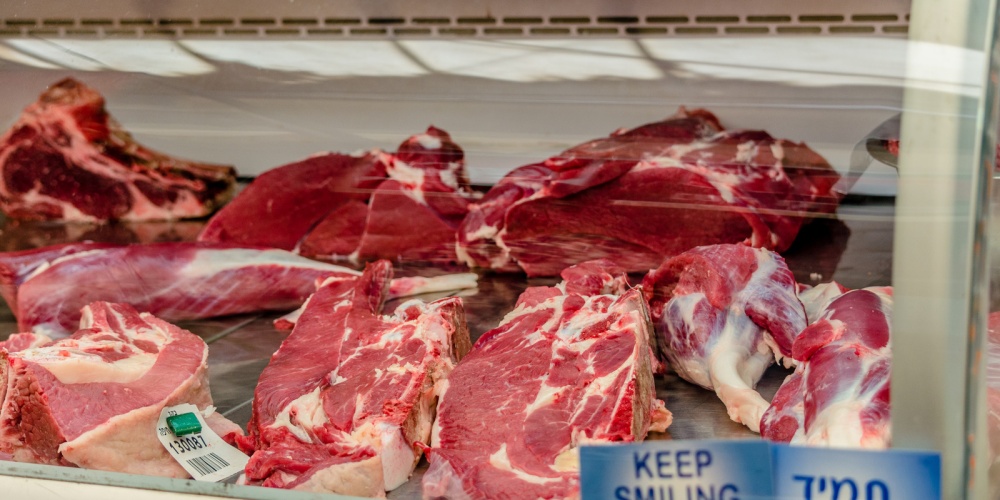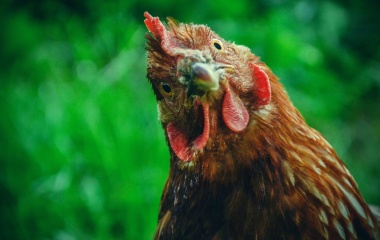
It is highly unlikely that one would give repeat business to a supposedly kosher butcher who sold you non-kosher meat, or to one who misled you regarding a particular product. But what about a butcher who tells you that, while he does not keep kosher himself, he only sells kosher meat[1]? Or the butcher who you know keeps strictly kosher in some areas but not in others? And when, if and under what conditions should we give a cheat a second chance?
Questions of this nature are the subject matter of the last pages of the fourth chapter of Masechet Bechorot, once again demonstrating how a Talmudic discussion on a rather obscure topic—in this case, that of animal defects—can be the catalyst for discussions of great interest and relevance.
The Mishna (Bechorot 29b) begins by teaching that, “One who is suspect regarding [the laws of] firstborn animals, one may not purchase from him meat of a deer, nor hides that are not tanned”. The law that a firstborn animal must be given to the kohen applies only to a beheimah, a domesticated animal, such as sheep, goats and cattle. It does not apply to undomesticated kosher animals, such as a deer or giraffe. However, since deer meat can be easily confused with meat from a calf, our Sages forbade the purchase of deer meat from a butcher who is suspect regarding the laws of bechor, fearing they may substitute a little bit of bechor meat in place of deer. Even if one were to assume that the butcher would not serve others bechor meat on purpose, he might do so accidentally and hence, we must avoid purchasing even “deer meat[2]” from him. This is as one would expect.
What is unexpected is the implication of the Mishna regarding the prohibition of purchasing from this butcher “hides that are not tanned”. Here, too, we must fear that these untanned hides come from a bechor and hence, may not be purchased. However, while untanned hides may not be purchased, tanned ones may. The Gemara explains that since tanning hides is hard work, no butcher would exert so much effort that would all be for naught if it was discovered to be from a bechor. Better to spend one’s efforts on a “kosher animal”.
What is most fascinating about this case is the fact that our Sages did not feel the need to rule that one must avoid such a butcher altogether. If we can verify the kashrut of a particular item we can buy it, even if we can’t truly trust the owner[3].
But acceptance has its limits. “One who is suspect to sell terumah as chulin, we may not purchase from him even water and salt”. It is one thing to sell bechor meat to an unsuspecting customer; it is quite another to sell terumah[4]. A non-kohen who (purposely) eats terumah is subject to “death at the hands of heaven”. One who would sell such must be treated with the disrespect he himself showed; hence, we declare that one may no longer do business with such a person.
Yet even in such a case, this reflects the view of Rabbi Yehuda only; Rabbi Shimon argues—and the halacha follows the approach of Rabbi Shimon—that only items that have relevance to terumah are to be avoided. The owner may not be a nice nor an honest fellow, but if the food is kosher, there can be no prohibition of purchasing it.
The following Mishna teaches that one can observe kashrut in one area, but not another—and that we can still trust such a one in that area of observance. When it comes to religious practice, inconsistency is the norm.
“One who is suspect with regard to the laws of shemitta is not suspect with regard to the laws of tithes; one who is suspect with regard to tithes is not suspect with regard to the Sabbatical” (Bechorot 30a). It is not unreasonable for one to observe the laws of shemitta and not maaser sheni, or the laws of maaser sheni but not those of shemitta. Since the kedusha of maaser sheni can be transferred unto money, something we cannot do with the fruit of the seventh year, one might take liberties regarding maaser sheni. Conversely, maaser sheni (or its monetary equivalent) is to be eaten in Jerusalem only, whereas shemitta produce can be eaten anywhere, leading some to be careful regarding the laws of maaser sheni but not necessarily those of shemitta.
This is akin today to one who might observe the laws of Shabbat but not taharat hamishpacha, whereas there are those who are most strict regarding taharat hamishpacha, but take liberties regarding Shabbat.
Interestingly, the Mishna continues by noting that if one violates both the laws of maaser sheni and shemitta we can safely assume they are not careful about the laws of purity and impurity. Yet the reverse is not true and the fact that one is not careful about purity tells us little about whether they observe shemitta and maaser sheni. To put it in contemporary terms, we can be quite certain that one who eats chametz on Pesach and does not fast on Yom Kippur does not keep kosher. But knowing someone does not keep kosher sheds little light on whether they fast on Yom Kippur, or eat chametz on Pesach.
The Mishna concludes with a general principle that, “Whoever is suspect in a particular mitzvah may not offer testimony nor adjudicate regarding such a matter”. Our rabbis understood that one who does not keep kosher cannot be trusted to ascertain that food is kosher, and surely cannot be hired as a mashgiach. They may mean well and be perfectly honest, and they may even be knowledgeable in matters of kashrut. But if something is not considered important enough for one to observe, then it is not possible to vouch for its authenticity. Yet at the same time, one who is careful about kashrut may be trusted to testify that something is kosher, even if they happen to violate Shabbat.
Why one chooses to observe one mitzvah and not another is rarely related to the technical severity of the law only, but may be a mix of the difficulty of a particular mitzvah, social pressure, one's personality, historical factors, or a host of other factors relating to being human.
Like politics, all observance is local. In the city of Rabbi Yehuda, where shemitta was widely and carefully observed, one who flaunted its laws could not be trusted regarding maaser sheni.
Despite the risk of stereotyping, I think it’s rather obvious that when it comes to mitzvot, what is important to one group may be less so to another. For all kinds of reasons, Ashkenazim and Sephardim, Chassidim and Mitnagdim, those living in Israel and those in the Diaspora, Modern Orthodox and Chareidim, even Orthodox and non-Orthodox, tend to have certain mitzvot which they are particularity careful about as well as others in which a certain degree of laxity is the norm.
Once we recognize our own inconsistencies in observance, we can much more easily accept those of others.
[1] The question refers to a time, not so long ago, when there were no kashrut organizations and people bought food from vendors whom they trusted.
[2] It is the fear that one may inadvertently mix meat and milk that led the rabbis to forbid the consumption of chicken and milk, fearing that, while one might think they were eating chicken and milk, they might in fact be eating milk and meat.
[3] And it is due to this lack of trust that kashrut organizations were founded, to put in place systems that can just about ensure the food is kosher independent of the need to trust the vendor.
[4] So severe did people view the prohibition of a non-kohen eating terumah, our Sages (Nedarim 3:4) assumed that even armed bandits, even murderers would refrain from eating terumah.



